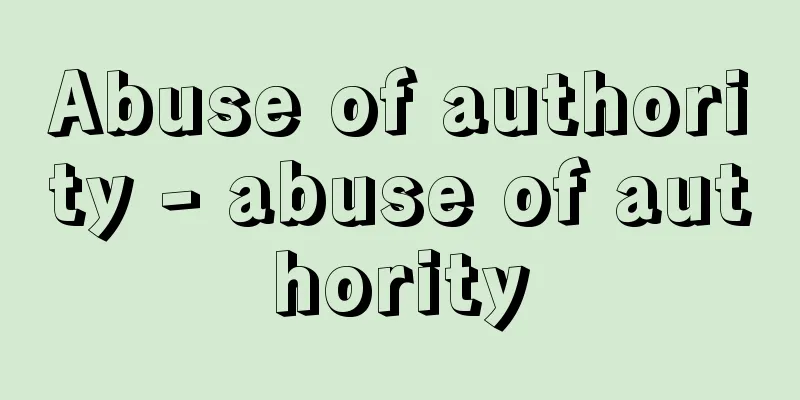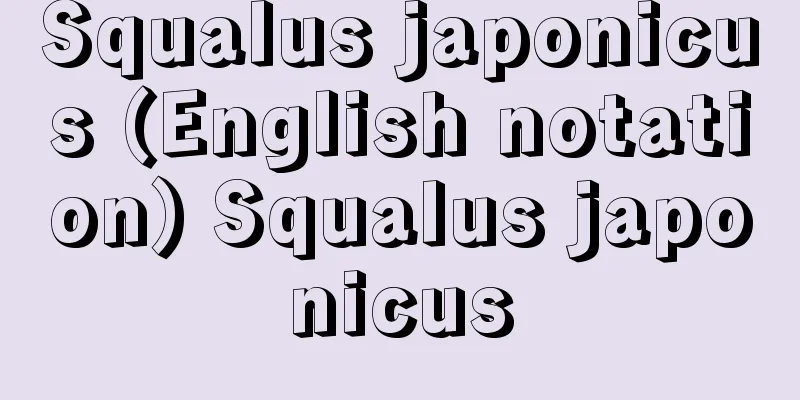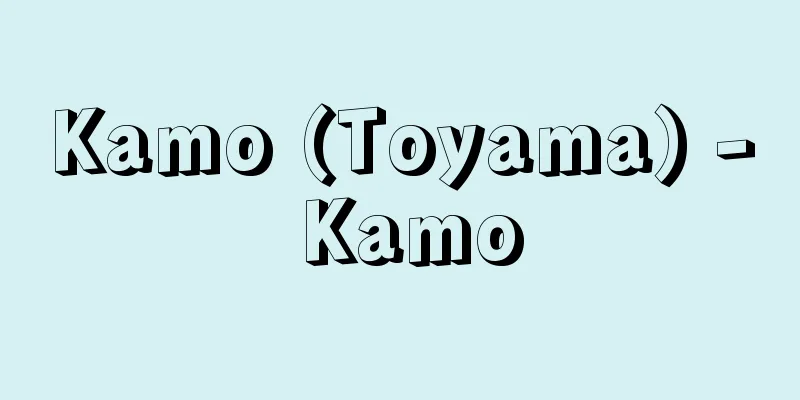Abuse of authority - abuse of authority

|
A crime in which a public official abuses his/her official authority in the performance of his/her duties. It is a type of crime against the national interest, and is a crime that impairs the proper functioning of the state's judicial and administrative functions. In practice, it is of great significance in protecting the freedom and human rights of the people from the abuse of state power. Therefore, in accordance with the spirit of the Constitution of Japan, particularly Article 15, paragraph 2 and Article 36, the statutory penalties for the crime of abuse of official authority have been generally increased, and a new system of quasi-indictment procedures has been established in the Criminal Procedure Code (Articles 262 and following). The current Criminal Code includes crimes of abuse of authority by public officials (imprisonment or incarceration for up to two years, Article 193), crime of abuse of authority by special public officials (imprisonment or incarceration for between six months and ten years, Article 194), and crime of assault and cruelty by special public officials (imprisonment or incarceration for up to seven years, Article 195), with provisions for resulting aggravated crimes for the latter two crimes (Article 196). Crime of abuse of authority by public officials is a crime in which a public official abuses his/her authority to make someone do something that is not their obligation, or to obstruct the exercise of a right. Crime of abuse of authority by special public officials is a crime in which a person performing judicial, prosecutorial, or police duties, or a person assisting in these duties, abuses his/her authority to arrest or confine someone. The crime of assault and cruelty by special public officials consists of the crime of a person performing judicial, prosecutorial or police duties, or a person assisting in such duties, committing an act of assault, humiliation or cruelty against a defendant, suspect or other person in the course of performing his or her duties, and the crime of a guard or escort of a person detained by law committing an act of assault, humiliation or cruelty against the detainee. [Tetsuro Nawa] Source: Shogakukan Encyclopedia Nipponica About Encyclopedia Nipponica Information | Legend |
|
公務員がその職務を行うにあたり、職権を濫用する罪。国家法益に対する罪の一種で、国家の司法・行政作用の適正を害する罪である。実際的には、国家権力の濫用から国民の自由や人権を守るうえで、重要な意義を有する。そこで、日本国憲法、とくに第15条2項や第36条の趣旨を受けて、職権濫用罪の法定刑は全般的に引き上げられるとともに、刑事訴訟法上も、準起訴手続の制度が新設された(262条以下)。 現行刑法には、職権濫用罪として、公務員職権濫用罪(2年以下の懲役または禁錮、193条)、特別公務員職権濫用罪(6月以上10年以下の懲役または禁錮、194条)、特別公務員暴行陵虐罪(7年以下の懲役または禁錮、195条)のほか、後の2罪については結果的加重犯の規定(196条)がある。公務員職権濫用罪は、公務員が、その職権を濫用し、人に義務のないことを行わせ、または権利の行使を妨害する罪である。特別公務員職権濫用罪とは、裁判・検察・警察の職務を行う者、またはこれらの職務を補助する者が、その職権を濫用して、人を逮捕または監禁する罪である。特別公務員暴行陵虐罪は、裁判・検察・警察の職務を行う者、またはこれらの職務を補助する者が、その職務を行うにあたり、被告人、被疑者その他の者に対して暴行または陵辱もしくは加虐の行為を行う罪、および、法令によって拘禁された者を看守または護送する者が、被拘禁者に対して暴行または陵辱もしくは加虐の行為を行う罪とからなる。 [名和鐵郎] 出典 小学館 日本大百科全書(ニッポニカ)日本大百科全書(ニッポニカ)について 情報 | 凡例 |
<<: The Weaver - Oriko (English spelling) Die Weber
>>: Official authority - Shokkenshugi
Recommend
Bagasse (English spelling)
The residue left over after squeezing the juice ou...
《Vengeance Senju no Sukedachi》
…First performed at the Hizenza Theater in April ...
High energy astronomy
A branch of astronomy that studies phenomena relat...
manual control
...Control refers to applying the necessary opera...
Karushima Toyomi Palace - Karushima Toyomi Palace
…The Umayazaka Road is thought to be the predeces...
Satsuma Jōun - Satsuma Jōun
Year of death: Unknown (Year of death unknown) Yea...
Barrymore family - Barrymore family
An American family of actors. Born to British acto...
Stabilizer - Antiban
A general term for the horizontal and vertical sta...
Michaux, P.
…The first pedal-powered bicycle was invented in ...
Kyokaen
A full-length novel from the Qing Dynasty in Chin...
Lord of the manor
In the Middle Ages, this term was used by Zen scho...
Shinji - Shinshiuji
A samurai family in the Kamakura and Muromachi per...
Eumeces latisctatus (English spelling)
…[Hiroshi Aramata]. … *Some of the terminology th...
Probability distribution - Kakuribu-mpu
When a random variable X is given, for any interv...
Encausse, G. (English spelling) EncausseG
…French physician and occult researcher. His real...









![Guernsey [island] - Guernsey](/upload/images/67cb4932e6e8c.webp)